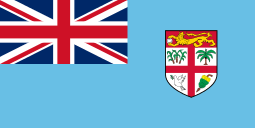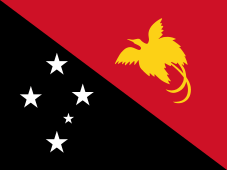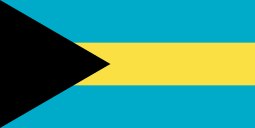Archipelagic state
An archipelagic state is any internationally recognized state or country that comprises a series of islands that form an archipelago. The term is defined by the United Nations Convention on the Law of the Sea in order to define what borders such states should be allowed to claim.
In various conferences of the United Nations on the Law of the Sea (UNCLOS),[1] Fiji, Indonesia, Papua New Guinea, the Bahamas, and the Philippines are the five sovereign states that obtained approval in the UN Convention on the Law of the Sea (UNCLOS) held in Montego Bay, Jamaica on December 10, 1982 and qualified as archipelagic states.[2]
Archipelagic states are states that are composed of groups of islands forming a state as a single unit, with the islands and the waters within the baselines as internal waters. Under this concept ("archipelagic doctrine"), an archipelago shall be regarded as a single unit, so that the waters around, between, and connecting the islands of the archipelago, irrespective of their breadth and dimensions, form part of the internal waters of the state, and are subject to its exclusive sovereignty.
The approval of the United Nations for the five sovereign states as archipelagic states respect[3] existing agreements with other countries and shall recognize traditional fishing rights and other legitimate activities of the immediately adjacent neighboring countries in certain areas falling within archipelagic waters. The terms and conditions for the exercise of such rights and activities, including the nature, the extent and the areas to which they apply, shall, at the request of any of the countries concerned, be regulated by bilateral agreements between them. Such rights shall not be transferred to or shared with third countries or their nationals.[4]
The five archipelagic sovereign states
-
 Fiji (Melanesia / Oceania)
Fiji (Melanesia / Oceania) -
 Indonesia (Southeast Asia / Asia)
Indonesia (Southeast Asia / Asia) -
 Papua New Guinea (Melanesia / Oceania)
Papua New Guinea (Melanesia / Oceania) -
 The Bahamas (North Atlantic Ocean / North America)
The Bahamas (North Atlantic Ocean / North America) -
 The Philippines (Southeast Asia / Asia)
The Philippines (Southeast Asia / Asia)
References
- ↑ "Preamble to the United Nations Convention on the Law of the Sea: Article 46 – Use of Terms". United Nations. May 13, 2013.
- ↑ "United Nations Convention on the Law of the Sea of 10 December 1982". United Nations. May 13, 2013.
- ↑ "2 laws UNLCOS 200 and Archipelagic States to End Spratlys Disputes: THE ARCHIPELAGIC STATES". Rebuilding for the Better Philippines. May 13, 2013.
- ↑ "PART IV ARCHIPELAGIC STATES: Article 51 – Existing agreements, traditional fishing rights and existing submarine cables". United Nations. May 13, 2013.